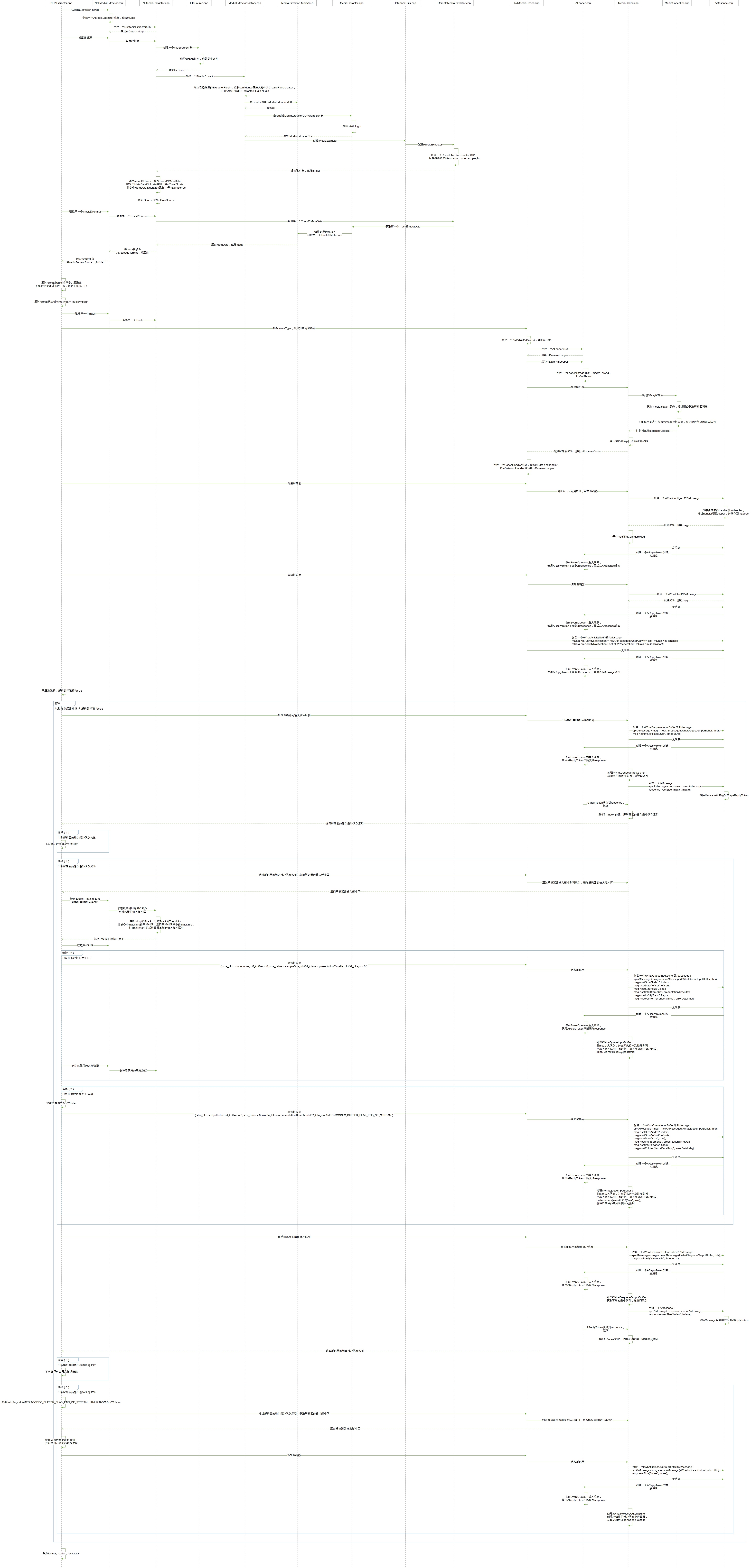1
2
3
4
5
6
7
8
9
10
11
12
13
14
15
16
17
18
19
20
21
22
23
24
25
26
27
28
29
30
31
32
33
34
35
36
37
38
39
40
41
42
43
44
45
46
47
48
49
50
51
52
53
54
55
56
57
58
59
60
61
62
63
64
65
66
67
68
69
70
71
72
73
74
75
76
77
78
79
80
81
82
83
84
85
86
87
88
89
90
91
92
93
94
95
96
97
98
99
100
101
102
103
104
105
106
107
108
109
110
111
112
113
114
115
116
117
118
119
120
121
122
123
124
125
126
127
128
129
130
131
132
133
134
135
136
137
138
139
140
141
142
143
144
145
146
147
148
149
150
151
152
153
154
155
156
157
158
159
160
161
162
163
164
165
166
167
168
169
170
171
172
173
174
175
| #include <sys/types.h>
#include <cstring>
#include <media/NdkMediaExtractor.h>
#include <utils/logging.h>
#include <cinttypes>
#include "NDKExtractor.h"
int32_t NDKExtractor::decode(AAsset *asset, uint8_t *targetData, AudioProperties targetProperties) {
LOGD("Using NDK decoder");
off_t start, length;
int fd = AAsset_openFileDescriptor(asset, &start, &length);
AMediaExtractor *extractor = AMediaExtractor_new();
media_status_t amresult = AMediaExtractor_setDataSourceFd(extractor, fd, static_cast<off64_t>(start), static_cast<off64_t>(length));
if (amresult != AMEDIA_OK) {
LOGE("Error setting extractor data source, err %d", amresult);
return 0;
}
AMediaFormat *format = AMediaExtractor_getTrackFormat(extractor, 0);
int32_t sampleRate;
if (AMediaFormat_getInt32(format, AMEDIAFORMAT_KEY_SAMPLE_RATE, &sampleRate)) {
LOGD("Source sample rate %d", sampleRate);
if (sampleRate != targetProperties.sampleRate) {
LOGE("Input (%d) and output (%d) sample rates do not match. NDK decoder does not support resampling.", sampleRate, targetProperties.sampleRate);
return 0;
}
} else {
LOGE("Failed to get sample rate");
return 0;
};
int32_t channelCount;
if (AMediaFormat_getInt32(format, AMEDIAFORMAT_KEY_CHANNEL_COUNT, &channelCount)) {
LOGD("Got channel count %d", channelCount);
if (channelCount != targetProperties.channelCount) {
LOGE("NDK decoder does not support different input (%d) and output (%d) channel counts", channelCount, targetProperties.channelCount);
}
} else {
LOGE("Failed to get channel count");
return 0;
}
const char *formatStr = AMediaFormat_toString(format);
LOGD("Output format %s", formatStr);
const char *mimeType;
if (AMediaFormat_getString(format, AMEDIAFORMAT_KEY_MIME, &mimeType)) {
LOGD("Got mime type %s", mimeType);
} else {
LOGE("Failed to get mime type");
return 0;
}
AMediaCodec *codec = nullptr;
AMediaExtractor_selectTrack(extractor, 0);
codec = AMediaCodec_createDecoderByType(mimeType);
AMediaCodec_configure(codec, format, nullptr, nullptr, 0);
AMediaCodec_start(codec);
bool isExtracting = true;
bool isDecoding = true;
int32_t bytesWritten = 0;
while (isExtracting || isDecoding) {
if (isExtracting) {
ssize_t inputIndex = AMediaCodec_dequeueInputBuffer(codec, 2000);
if (inputIndex < 0) {
if (inputIndex == AMEDIACODEC_INFO_TRY_AGAIN_LATER) {
} else {
LOGE("Codec.dequeueInputBuffer unknown error status");
}
} else {
size_t inputSize;
uint8_t *inputBuffer = AMediaCodec_getInputBuffer(codec, inputIndex, &inputSize);
ssize_t sampleSize = AMediaExtractor_readSampleData(extractor, inputBuffer, inputSize);
auto presentationTimeUs = AMediaExtractor_getSampleTime(extractor);
if (sampleSize > 0) {
AMediaCodec_queueInputBuffer(codec, inputIndex, 0, sampleSize, presentationTimeUs, 0);
AMediaExtractor_advance(extractor);
} else {
LOGD("End of extractor data stream");
isExtracting = false;
AMediaCodec_queueInputBuffer(codec, inputIndex, 0, 0, presentationTimeUs, AMEDIACODEC_BUFFER_FLAG_END_OF_STREAM);
}
}
}
if (isDecoding) {
AMediaCodecBufferInfo info;
ssize_t outputIndex = AMediaCodec_dequeueOutputBuffer(codec, &info, 0);
if (outputIndex >= 0) {
if (info.flags & AMEDIACODEC_BUFFER_FLAG_END_OF_STREAM) {
LOGD("Reached end of decoding stream");
isDecoding = false;
}
size_t outputSize;
uint8_t *outputBuffer = AMediaCodec_getOutputBuffer(codec, outputIndex, &outputSize);
memcpy(targetData + bytesWritten, outputBuffer, info.size);
bytesWritten += info.size;
AMediaCodec_releaseOutputBuffer(codec, outputIndex, false);
} else {
switch (outputIndex) {
case AMEDIACODEC_INFO_TRY_AGAIN_LATER:
LOGD("dequeueOutputBuffer: try again later");
break;
case AMEDIACODEC_INFO_OUTPUT_BUFFERS_CHANGED:
LOGD("dequeueOutputBuffer: output buffers changed");
break;
case AMEDIACODEC_INFO_OUTPUT_FORMAT_CHANGED:
LOGD("dequeueOutputBuffer: output outputFormat changed");
format = AMediaCodec_getOutputFormat(codec);
LOGD("outputFormat changed to: %s", AMediaFormat_toString(format));
break;
}
}
}
}
AMediaFormat_delete(format);
AMediaCodec_delete(codec);
AMediaExtractor_delete(extractor);
return bytesWritten;
}
|
